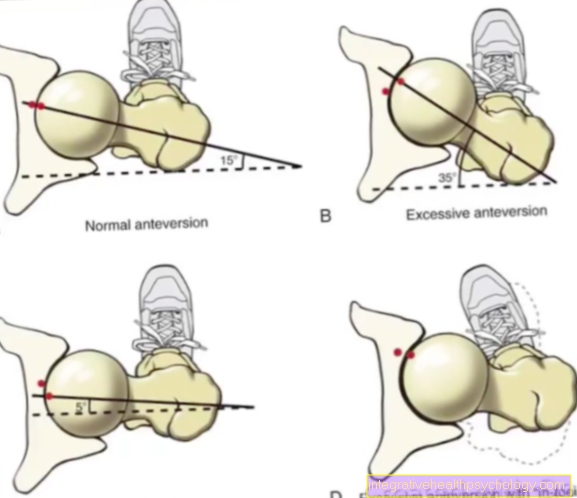Anti-authoritarian education
definition
Anti-authoritarian education is a collective term for various educational concepts from the 1960s and 1970s. This way of life is closely linked to the student movements of the 68s and 70s and comes from a generation that grew up in a time when obedience, compulsions and rules were pillars of education.
Anti-authoritarian education is absolutely the opposite of these cornerstones. The idea was that the new generation of parents wanted to do things differently with their children and put a free upbringing in the foreground.
Read more on this topic: Educational goals

introduction
The anti-authoritarian is a comprehensive educational philosophy and not just an educational style. The anti-authoritarian education was scientifically justified and established educational goals, norms and models.
The following ideals are characteristic of anti-authoritarian education:
- right
- freedom
- Developmental autonomy for the child
Above all, it is a matter of shaping upbringing without constraints, so that the children can freely develop their personalities and realize themselves.
In addition, the movement pursued a liberalization of the education of cleanliness, order, the removal of taboos and the liberation of child sexuality. The children should be less pushed into predetermined roles.
You can find more tips on raising your child here: Raising children
What are the advantages of this type of education?
In the anti-authoritarian upbringing, children are brought up freely so that they have every opportunity to develop and develop completely freely. This enables the children to try many things and in this way find out where their personal strengths lie.
The children try out what they enjoy and what they don't. They develop their own ideas and recognize their strengths and weaknesses. Anti-authoritarian upbringing promotes children's creativity to a great extent.
In addition, through their freedom and experiences, the children develop healthy self-confidence and self-confidence. At the same time, the children learn at an early age to take responsibility themselves. You learn early on that your actions will have consequences. As a result, they have both positive and negative experiences.
Anti-authoritarian upbringing is based on the idea that there should be no strict hierarchy between parents and children. That is why children and parents meet at eye level. The children feel that they are being taken seriously and learn to articulate and discuss.
What are the disadvantages?
The anti-authoritarian education dispenses with rules and compulsions. In the case of one or the other child, however, this can lead to the fact that they are very intent on their own advantage and put themselves in the foreground.
In the social environment, in kindergarten, in school or later in professional life, people raised to be anti-authoritarian can attract negative attention through selfishness. The children often have difficulties dealing with negative criticism and subordinating themselves to a group or hierarchy, as in later professional life.
In school, children raised in an anti-authoritarian manner can attract negative attention due to a lack of social behavior. They are not infrequently considered to be loners because they are less able to adapt and want to be the center of attention.
Unfortunately, the children often lack consideration. In addition, the children act on the principle of pleasure, they do exactly the things that are fun for them. What children do not enjoy, they simply do not do. However, this can have negative effects in some things: if the children don't feel like doing their homework, they don't do it.
Small children in particular do not understand the importance of some tasks and do not act out of well-founded considerations. The children often attract negative attention at school and get poorer grades, even though they are actually gifted in one or the other subject.
This topic could also be of interest to you: Daycare or childminder - which form of care is right for my child? or punishment in education
In addition, the editors recommend the article about at this point "Educational Advice"if you need outside help in bringing up your child.
What is the criticism of an anti-authoritarian upbringing?
Anti-authoritarian upbringing dates back to the 1960s and 1970s and is rarely implemented these days. Anti-authoritarian upbringing has many advantages but also disadvantages.
The children have an incredible number of opportunities to develop freely and express their personality. They get to know their own strengths and weaknesses early on and can do the things that give them pleasure. Upbringing promotes creativity and self-expression to a high degree.
At the same time, the renunciation of rules and hierarchy means that the children often attract negative attention in the social environment. They find it difficult to fit into a group, to subordinate themselves and to do tasks that they do not enjoy.
Children are often unable to decide what is really important and what is not. Homework, for example, should not be left to the child freely, it should be done easily.
Read our article on this: Authoritative upbringing
The consequences of anti-authoritarian upbringing in adulthood, which make it difficult for one or the other to subordinate and adapt in professional life, must also be viewed critically.
Every child is different. There are children who are very interested in their fellow human beings at an early age and for whom an anti-authoritarian upbringing is particularly beneficial. Other people who tend to egoism can get even more problems through this form of upbringing in social life and remain solitary.
The following topic could also be of interest to you: Chastisement
What are the consequences of an anti-authoritarian upbringing?
The consequences of an anti-authoritarian upbringing are that children can develop much more freely than in most other forms of upbringing. They have the opportunity to live out what they enjoy and what suits them. The self-confidence and creativity of the children are particularly encouraged.
At the same time, the abandonment of rules can lead to difficulties for the children in school. They often cannot submit to themselves, do not do their homework, or they attract negative attention due to poor social behavior. This can mean that the children get poorer grades and graduate from school.
The abandonment of any form of hierarchy in education can lead to the fact that the children in adult life have problems in working life and simply cannot and do not want to subordinate themselves.
The anti-authoritarian upbringing does not dictate anything to the children. As a result, they often fail to learn important aspects of social behavior, such as being considerate or accepting criticism. In adult life this can lead to people becoming loners.
Is your child permanently unable to concentrate properly? Read more about this under: Concentration training - improvement of the lack of concentration
Educational concept according to A. S. Neill
Alexander Sutherland Neill was an educator and director of the Democratic Summerhill School in England, which he himself founded at the beginning of the 20th century. The educationalist was of the opinion that a child is “good” from birth and capable of love, compassion and empathy.
Comparable to the anti-authoritarian upbringing, Neill welcomed the sexual permissiveness. Neill found childhood self-love and the instinct for masturbation to be natural in contrast to the educator's otherwise very religious contemporaries.
He advocated learning out of lust for life in contrast to learning for school with performance pressure. In addition to the Democratic School in England, he also founded a school in Germany together with Dr. Otto Neustätter and Lilian Neustätter, namely the international school in Hellrau.
Summerhill
Summerhill is a democratic school in Leiston, England, founded in 1921 by A. S. Neill. The ideas of the school are similar to the principle of free education within the framework of anti-authoritarian education in Germany during the 1960s.
The characteristics of Summerhill were self-government of the school by a kind of school community, in which children and teachers met on an equal footing about everyday school life, completely voluntary class attendance and workshops for the students.
This topic could also be of interest to you: Educational mandate - what is it?
Recommendations from the editorial team
Other topics could also be of interest to you:
- raising children
- Authoritative upbringing
- school enrollment
- Learning problems
- Poor concentration
- Behavioral problems in children
- Educational assistance - what is it?





.jpg)























